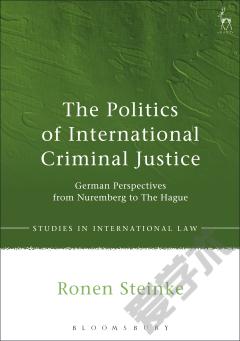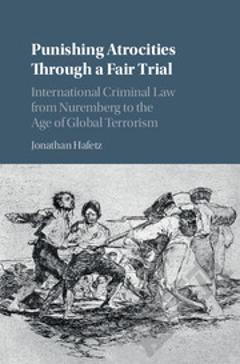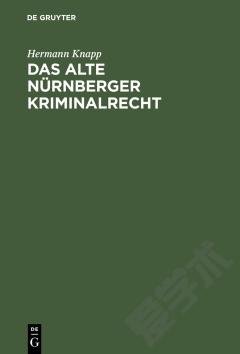The Politics of International Criminal Justice —— German Perspectives from Nuremberg to The Hague
----- 国际刑事司法的政治:德国的聚光灯
Introduction 1 The Politics of 'Historical Truth': An Outline 1. 'Historical Truth' as a Goal and a Problem 2. Extreme Selectivity and Slices of Truth 3. The Need for Representative Case Selections 4. Are Objective Selections Possible? The Gravity Test 5. The Critical Systemic Role of the Prosecutor 6. Checks on the Prosecutor? The 'Accountability v Independence' Debate 7. Conclusion 2 German Objections to the Nuremberg Trials after 1949 1. The Allies in Control 2. Allied Priorities: Shaping the Historical Narrative 3. Germany and the nullum crimen Debate 4. Germany and the tu quoque Debate 5. Germany's Opposition to New Tribunals 5 6. Conclusion 3 Germany's Own GDR Trials after 1989 1. West Germany in Control 2. West German Narrative Interests 3. The U-Turn on nullum crimen 4. Conclusion 4 German Support for the UN Ad Hoc Tribunals in the 1990s 1. The UN Security Council in Control 2. Germany's Narrative Interests on the Balkans 3. Western Priorities: Shaping the Historical Narrative 814. Germany's Interests in New Tribunals 5. Conclusion 5 Germany's Role (and Stake) in the Creation of the ICC 1. Who Should Be in Control? 2. Originally, Germany Favoured UN Security Council Control 3. Then, Germany Argues for 'Independence' Instead 4. Remarkably, Idealist and Realists in Germany had Joined Hands 5. German Realists had Nothing to Lose from the Shift Towards Independence 6. More Importantly However, They had a Lot to Gain 7. Independence and the Crime of Aggression 8. Conclusion 1 6 Cosmopolitan Ideals and National Interests: Concluding Remarks
{{comment.content}}








 京公网安备 11010802027623号
京公网安备 11010802027623号